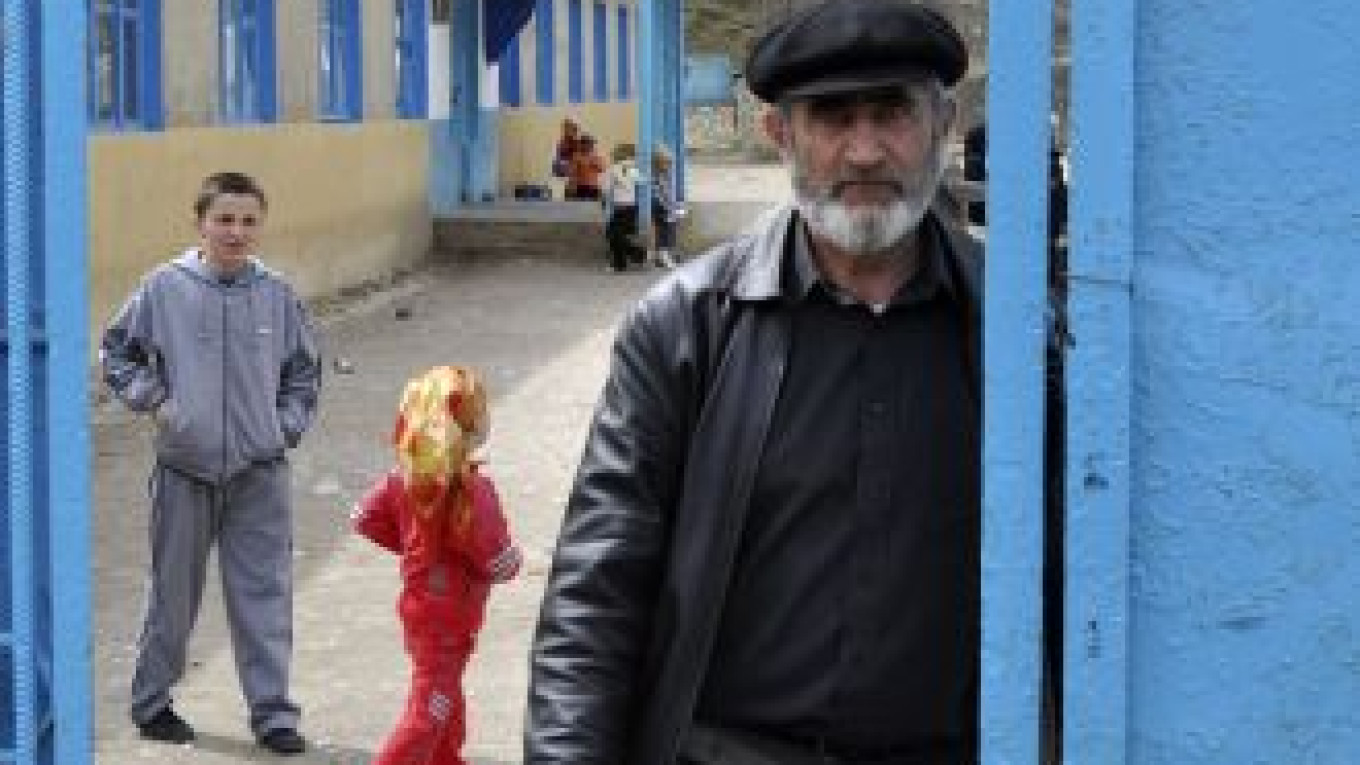BALAKHANI, Dagestan — Rasul Magomedov identified his daughter after investigators showed him three photos of her detached head. It had blown off her body in the Moscow metro as she detonated explosives strapped to her waist.
In the biggest such attack on the capital in six years, authorities say Magomedov's daughter Mariam Sharipova killed 28 people during rush hour March 29. A 17-year-old Muslim widow, Dzhanet Aburakhmanova, killed another 12.
Both came from Dagestan. An Islamist rebel group headed by Chechen Doku Umarov, the self-styled “Emir of the Caucasus,” claimed responsibility for the attacks.
Sitting cross-legged beside his sobbing, hijab-clad wife on the floor of their home in the mountain village of Balakhani, 150 kilometers southwest of Dagestan's capital, Makhachkala, Magomedov refused to accept that his daughter acted of her own will.
"I am convinced that very specific people stole her, and these people are trying to destroy the Russian state," he said, casting his green eyes at a stack of textbooks penned by his 28-year-old daughter, who was the deputy head of information technology at the village's sole school.
"The current powers are deliberately trying to wipe out and cleanse the North Caucasus of its Muslim population. They are waging a war with us," he said as a melodic muezzin resounded through the village of 3,000, perched high up in lush mountains.
Many in Dagestan accuse Moscow of trying to stir public feeling against the mainly Muslim North Caucasus, a place the Kremlin has labeled its biggest domestic political problem.
An Islamist insurgency is raging in the region, particularly in Dagestan, Ingushetia and Chechnya. A region that took the tsar's army decades to conquer in the 19th century, it is home today to continued strong resistance against Moscow's rule.
Militants fired by poverty and the ideology of global jihad stage near-daily attacks in the North Caucasus, and many want to carve out an independent sharia state.
Both of Sharipova's brothers have disappeared. Both have been placed on a federal search list, one for purportedly aiding her suicide attack. Their parents, who are both teachers, vehemently deny the claims but refuse to disclose their sons' location.
In her daughter's pink bedroom, Sharipova's mother, Patimat Murshidova, ruffled through fashion magazines, scented body creams and notebooks from their joint Arabic lessons at the madrassa, or Islamic school, that opened earlier this year.
"See, she was a normal girl like anyone else, interested in everything the world had to offer. How am I going to live without her?" she said between sobs, in heavily accented Russian.
Students and colleagues at Sharipova's schoolhouse — a one-story building with blue window panes, no indoor plumbing and where cows graze nearby — are trying to come to terms with her fate.
"Over the last few years she became more religious, but she was always so timid," said foreign language teacher Isa Magomedov, 37, who had known Sharipova since childhood.
He said some pupils at the school thought that her Moscow metro attack was heroic. The school's principal and teachers accompanied reporters at all times during their visit, and it was not possible to verify the children's opinions independently.
"Now there is a black mark on Dagestanis. It's made it even worse for men with beards," Magomedov said, adding that migrant workers from Balakhani to the Russian heartland are suffering from their contracts suddenly being cut.
Islam is flourishing in the North Caucasus, where religion was strongly discouraged under communism, and Dagestanis are immensely proud of their ancient gateway city of Derbent on the Caspian Sea, where Arabs brought the Islamic faith more than 1,000 years ago.
Most of Dagestan's 3,000 mosques were built after the Soviet collapse almost 20 years ago, Arabic script is omnipresent, and Islamic universities are swelling in size.
But with this revival also comes violence and an upsurge in militancy, worrying both government and religious leaders.
Dagestan's first deputy prime minister, Rizvan Kurbanov, said lawlessness and unemployment — which stood at 20 percent at the beginning of the year — inspire young people to turn to radical Islam, and endemic corruption spurs them on.
"In this republic the law fell asleep," Kurbanov said in an interview overlooking Makhachkala's main square, flanked by towering buildings painted with the Islamic color of green and decorated with Eastern designs.
"If a person has hot water at home, can peacefully watch television, receives a salary, then why would he need to go to the forest? That is also an issue we must resolve," Kurbanov said, referring to the wooded mountains where militants hide.
Arif Saidov, director of Derbent's mixed-sex Muslim University, which was set up five years ago and caters to 200, said students swayed by extremism confront him daily.
"They come to us with brochures they've picked up or have questions about the so-called glory of martyrs, and we have to guide them away from this," he said.
A 23-year-old student at Makhachkala's Islamic Institute, where the awarding of theology degrees has quadrupled since it opened six years ago, said the wars in Iraq and Afghanistan piqued his contemporaries' interest in Islam.
"More than ever, young people are going to the mosque and searching for religion, for the true Islam," said Maksud Pilkov, wearing a cream skullcap and sporting an adolescent beard.


